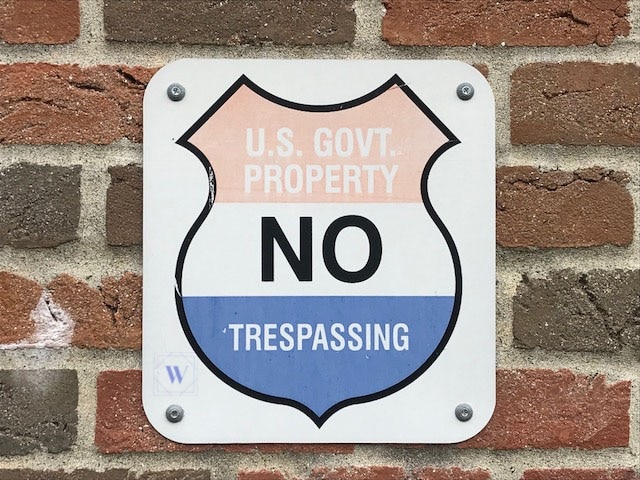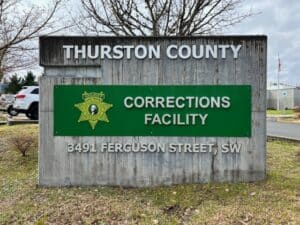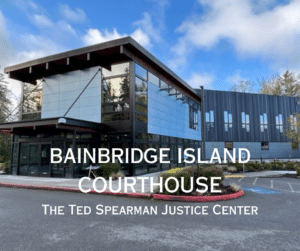
In the State of Washington, trespassing can be either civil or criminal in nature. Basically, it depends on who is bringing the cause of action.
Let’s suppose you always pick blackberries on your neighbors property and you have done this for many years. One day, your neighbor is being grumpy and shouts out the window at you, “No more blackberry picking on my property!” You really want to make blackberry jam so you keep sneaking over there for the next week. One day, you get notice that your neighbor is suing you for trespass and is seeking damages. This will be a civil case. That means, the plaintiff (person filing the lawsuit) is your neighbor and you are the defendant. You are likely being sued for money damages.
Now, let’s suppose you use that jam to make sandwiches for a picnic at Vance Creek Bridge. For those who don’t know, this is a bridge that was used by trains to haul timber off of a private lumber company’s land. The property hasn’t been used for logging in decades and the land, as well as the old bridge, is quite picturesque. Locals have been “trespassing” for years. However, with social media sharing, the area has become a hot spot for non-local visitors, too. Recently, the timber company decided it was not a good idea for people to trespass since the company could be sued for the trespassers injuries. The local law enforcement in the area enforces the notice that the public is not allowed to trespass on the land. When someone is caught, law enforcement writes them a ticket, which is criminal in nature. (We have never heard of anyone being arrested on site for trespassing but it is entirely possible.) In this scenario, the County will be filing criminal charges against you and the penalties are no longer just money damages or an order to stay off of the property.
Criminal Trespassing can be charged as first degree or second degree
Criminal Trespass in the first degree can be found at RCW 9A.52.070:
(1) A person is guilty of criminal trespass in the first degree if he or she knowingly enters or remains unlawfully in a building.
(2) Criminal trespass in the first degree is a gross misdemeanor.
Criminal trespass in the second degree can be found at RCW 9A.52.080:
(1) A person is guilty of criminal trespass in the second degree if he or she knowingly enters or remains unlawfully in or upon premises of another under circumstances not constituting criminal trespass in the first degree.
(2) Criminal trespass in the second degree is a misdemeanor.
Notice the words “knowingly enters or remains” in both statutes. In the blackberry picking example above, Grumpy Neighbor alerted you that your privilege to enter his property had been revoked. Therefore, if that scenario became criminal in nature, the Prosecutor would assert that you knowingly entered unlawfully.
Occasionally, we will have clients claim that the didn’t know they were entering private property. Perhaps they are out on a hike that they believed was on public lands but accidentally traversed onto private logging land. Sometimes, this is a legitimate defense. However, where there are signs “no trespassing” (as many private logging companies are doing), it is not okay to enter the land even if it looks abandoned or as though there is no active logging. In the second example above, the Vance Creek Bridge area is clearly marked with “no trespassing” signs and, therefore, it is not an excuse to claim it looks abandoned or “everyone else is doing it” so it must be okay.
The Revised Code of Washington does provide a list of defenses with respect to criminal trespass in RCW 9A.52.090:
In any prosecution under RCW 9A.52.070 and 9A.52.080, it is a defense that:
(1) A building involved in an offense under RCW 9A.52.070 was abandoned; or
(2) The premises were at the time open to members of the public and the actor complied with all lawful conditions imposed on access to or remaining in the premises; or
(3) The actor reasonably believed that the owner of the premises, or other person empowered to license access thereto, would have licensed him or her to enter or remain; or
(4) The actor was attempting to serve legal process which includes any document required or allowed to be served upon persons or property, by any statute, rule, ordinance, regulation, or court order, excluding delivery by the mails of the United States. This defense applies only if the actor did not enter into a private residence or other building not open to the public and the entry onto the premises was reasonable and necessary for service of the legal process.
While we hope you found this basic information on trespassing interesting, it is not a substitute for legal advice. A criminal charge is very serious and, if you are facing a charge for trespassing, you should seek the advice of counsel. General information can be informative but the outcome of every case is determined by the unique set of facts involved and the experience of an attorney to help you navigate the criminal process.
If we can help you with a criminal trespass matter or you have questions regarding another matter, we offer free consultations. The attorneys at Witt Law Group PS would be happy to assist you. We are available 24/7 to help. We serve Kitsap County, Jefferson County, Mason County and the City of Gig Harbor. To best serve this large area, have offices in Bremerton and Gig Harbor for your convenience. Call one of our offices or CLICK HERE to fill out our online contact form. Thanks for reading!

Get help now
Whether you choose to handle your case alone or engage the Witt Law Group, being informed and prepared is essential. Early involvement of an attorney can significantly impact your chances of a fair recovery, allowing you to focus on healing while we handle negotiations with insurance adjusters to secure fair compensation for your injuries.




